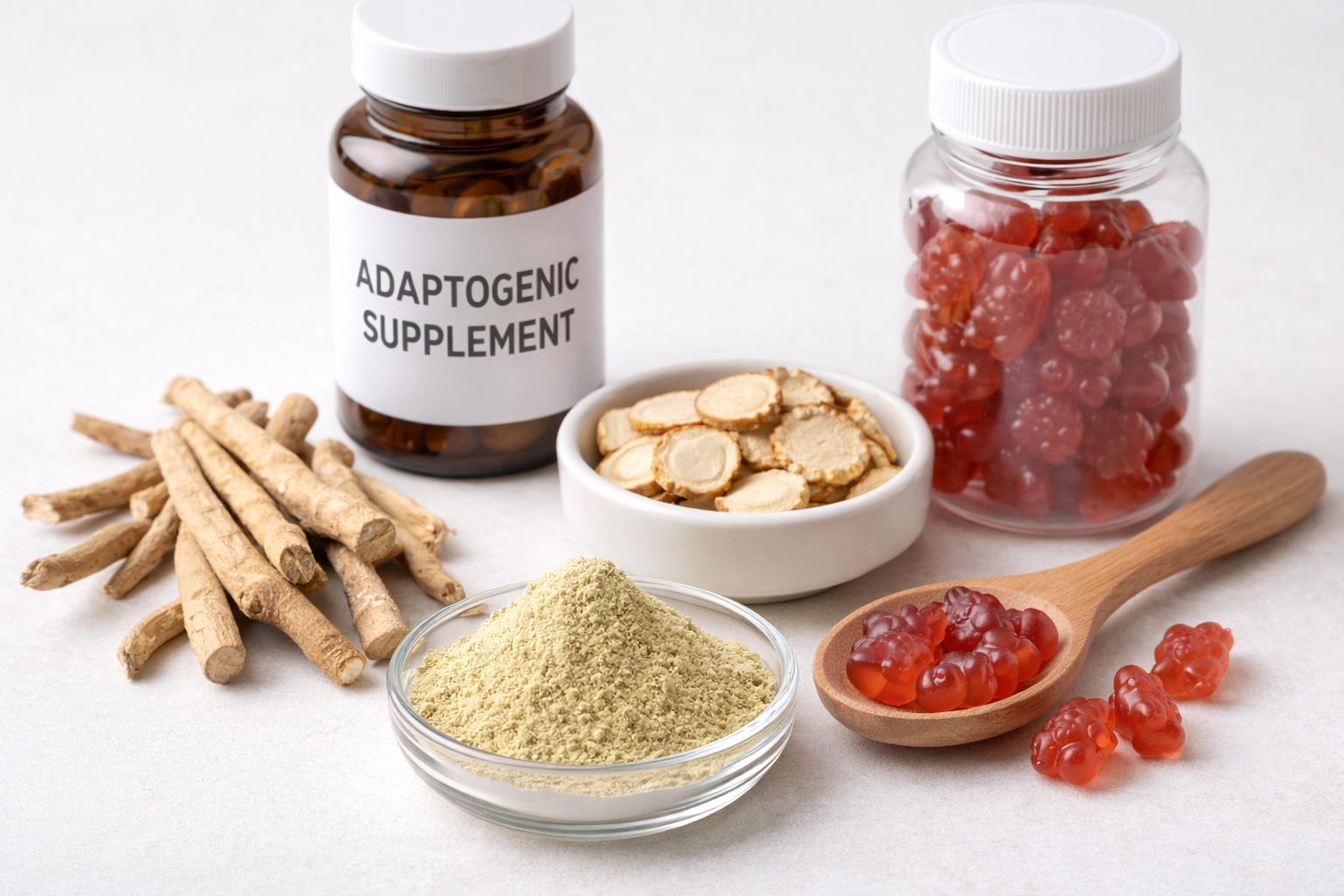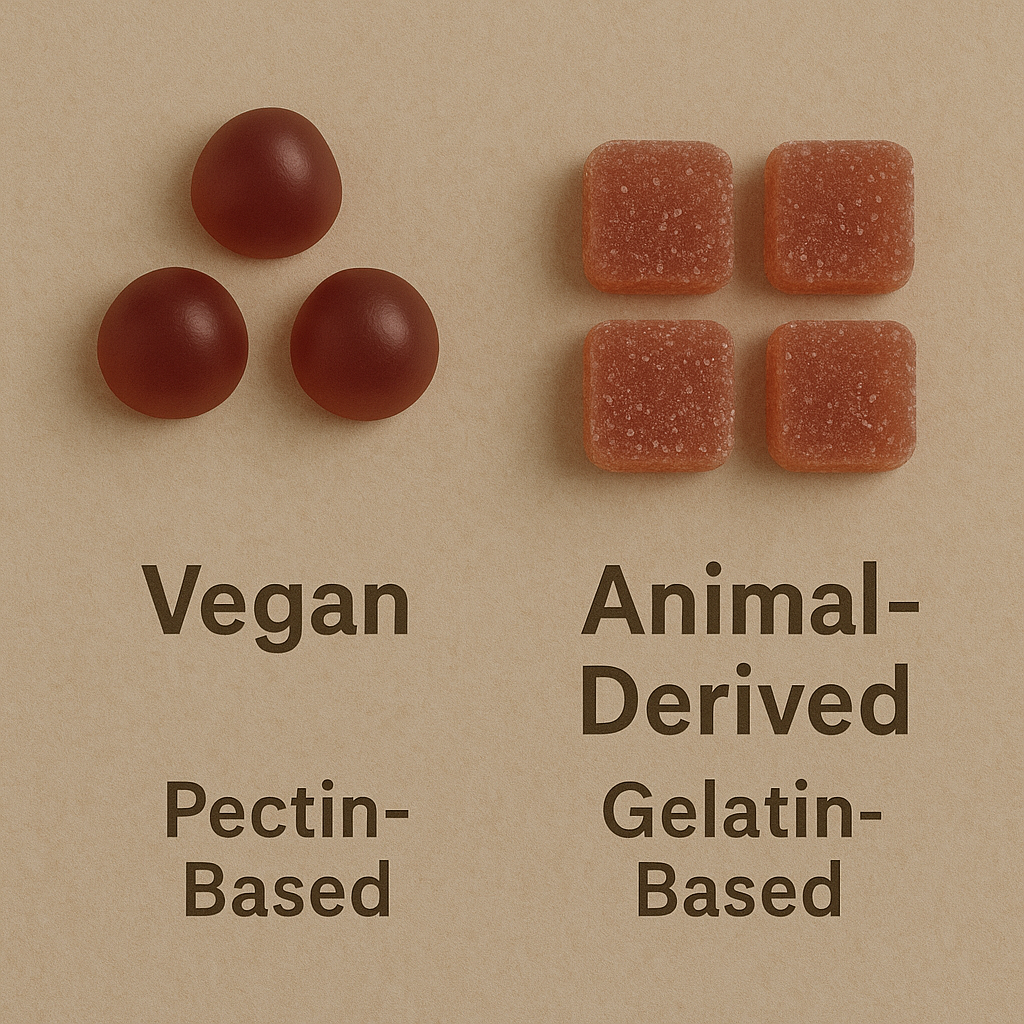
You’re intrigued by the buzz around mushroom gummies and their touted health benefits. However, concerns about potential side effects and expert warnings make you hesitant. Navigating the world of functional mushroom supplements can be confusing. This article aims to clarify the benefits, possible risks, and expert insights to help you make an informed decision.
Mushroom gummies may offer cognitive support, immunity benefits, and stress relief. They are often made with adaptogenic mushrooms like lion’s mane, reishi, and cordyceps. However, they can cause mild side effects like digestive discomfort or allergic reactions in sensitive individuals. Experts advise checking product quality, dosage, and certifications before use. Not all gummies are created equal; some may contain fillers or unverified extracts, so it’s essential to choose reputable brands.
Understanding both the advantages and cautions associated with mushroom gummies is crucial. Let’s delve deeper into their composition, benefits, potential side effects, expert opinions, quality indicators, and suitability for various individuals, so you can decide if mushroom gummies are right for your brand or customers.
What Are Mushroom Gummies Made Of?
Mushroom gummies are a convenient way to consume functional mushrooms, but what exactly goes into them?
Typically, mushroom gummies contain extracts from functional mushrooms like lion’s mane, reishi, and cordyceps, combined with natural sweeteners, gelling agents like pectin or gelatin, and flavorings. Some formulations may also include additional adaptogens or vitamins.
The core ingredient in these gummies is typically a powdered or liquid extract of functional mushrooms like lion’s mane, reishi, chaga, or cordyceps. These extracts may be full-spectrum or mycelium-based. Full-spectrum uses the fruiting body, which many experts prefer for higher beta-glucan content.
Additional ingredients may include:
- Sweeteners: Natural options like cane sugar or tapioca syrup.
- Gelling Agents: Pectin for vegan-friendly gummies or gelatin for traditional ones.
- Flavorings: Natural fruit flavors to enhance taste.
- Additives: Some products incorporate vitamins like B12 or adaptogens such as ashwagandha.
Gummies using full-spectrum fruiting body extracts tend to deliver higher therapeutic value.
Vegan mushroom gummies use pectin and avoid animal gelatin.
What Benefits Can Consumers Expect from Mushroom Gummies?
Mushroom gummies are marketed for various health benefits, but which ones are real?
Benefits often include cognitive support, stress relief, immune enhancement, and increased energy, depending on the specific mushrooms used.
Lion’s mane supports cognitive function and focus. Reishi may help with stress and sleep. Cordyceps can improve stamina and physical performance. Chaga is known for its antioxidant support. These benefits come from the adaptogenic and anti-inflammatory properties of mushrooms. Gummies that use clinically studied extracts are more likely to deliver these benefits.
| Mushroom | Primary Benefit | Additional Notes |
|---|---|---|
| Lion’s Mane | Brain function | Focus, memory support |
| Reishi | Stress reduction | May improve sleep |
| Cordyceps | Energy & stamina | Used in sports supplements |
| Chaga | Antioxidant boost | Often used in skincare |
Clinical studies support the nootropic effects of lion’s mane.
Adaptogens like reishi are recognized for helping regulate the body’s stress response.
Are There Any Common Side Effects?
While mushroom gummies are mostly safe, some users report side effects.
The most common issues are digestive discomfort, headaches, or allergic reactions, especially for those new to mushrooms.
Potential side effects may arise from individual sensitivities or interactions with other medications.
These can include:
- Digestive Issues: Bloating, gas, or nausea.
- Allergic Reactions: Itching, rash, or swelling.
- Headaches: Possibly due to certain compounds in the mushrooms.
It’s advisable to start with a lower dose to assess tolerance and consult a healthcare provider if any adverse reactions occur.
Sensitive users should start with half a gummy to test tolerance.
Products without full ingredient disclosure may hide synthetic or low-quality fillers.
What Do Experts Say About Long-Term Use?
Experts are cautiously optimistic about the long-term effects of mushroom supplements.
While initial studies are promising, comprehensive long-term research is limited, and effects may vary based on individual health conditions and product quality.
[Sub-heading Featured Image]
Suggested image: A scientist or nutritionist holding a bottle of mushroom gummies.
Experts suggest that while functional mushrooms have been used traditionally for centuries, modern scientific studies on long-term use are still emerging.
Potential concerns include:
- Immune System Modulation: Some mushrooms can stimulate or suppress immune activity, which may not be suitable for individuals with autoimmune conditions.
- Interactions with Medications: Mushroom compounds may interact with certain medications, affecting their efficacy.
- Quality Variability: Inconsistent product quality can lead to unpredictable effects.
Nutritionists recommend cycling mushroom use and taking breaks to prevent dependence or resistance. Always look for certifications such as NSF or USP to confirm safety over time.
Trusted certifications and clinical trials increase the safety profile of mushroom gummies.
Experts recommend taking mushroom gummies for 4-8 weeks, then pausing for 1-2 weeks.
How Can You Identify a High-Quality Mushroom Gummy?
Not all mushroom gummies are effective. How can you tell which ones are worth buying?
Check for full-spectrum extracts, clear labeling, third-party testing, and clean ingredient lists.
A good gummy will list exact mushroom species and extraction method. Full-spectrum or fruiting body extracts are superior to mycelium-grown-on-grain. Look for third-party testing for purity and active compounds. Vegan-friendly products use pectin, not gelatin. Avoid those with added sugars, artificial flavors, or proprietary blends. Transparent labeling shows the brand has nothing to hide.
| Criteria | What to Look For |
|---|---|
| Source | Fruiting body, organic mushrooms |
| Transparency | Clear ingredient list, dosage shown |
| Quality | Third-party tested, no fillers |
| Packaging | Light-blocking, airtight containers |
Full-spectrum fruiting body extract provides more active compounds.
Third-party tested products reduce health risks.
Are Mushroom Gummies Suitable for Everyone?
Can anyone take mushroom gummies, or are there groups who should avoid them?
Most healthy adults can use them, but children, pregnant women, and people with autoimmune issues should ask a doctor first.
Considerations for specific populations include:
-
Pregnant or Breastfeeding Women: Limited research on safety; medical advice recommended.
-
Children: Dosage and safety not well-established; consult a pediatrician.
-
Individuals with Health Conditions: Those with autoimmune diseases or on immunosuppressive therapy should exercise caution.
Personalized medical guidance ensures safe and appropriate use.
Medical guidance is important for those with underlying conditions.
Labels should always state warnings for sensitive groups.
Conclusion
Mushroom gummies are a growing trend, with potential to support health in several ways. But their benefits depend on ingredient quality, proper use, and understanding risks. Brands and consumers alike must choose products backed by science and transparent practices.
Mushroom gummies can help with focus, stress, and energy, but they are not for everyone. Know what’s inside. Start slow. Check certifications. That’s how you win with wellness.



